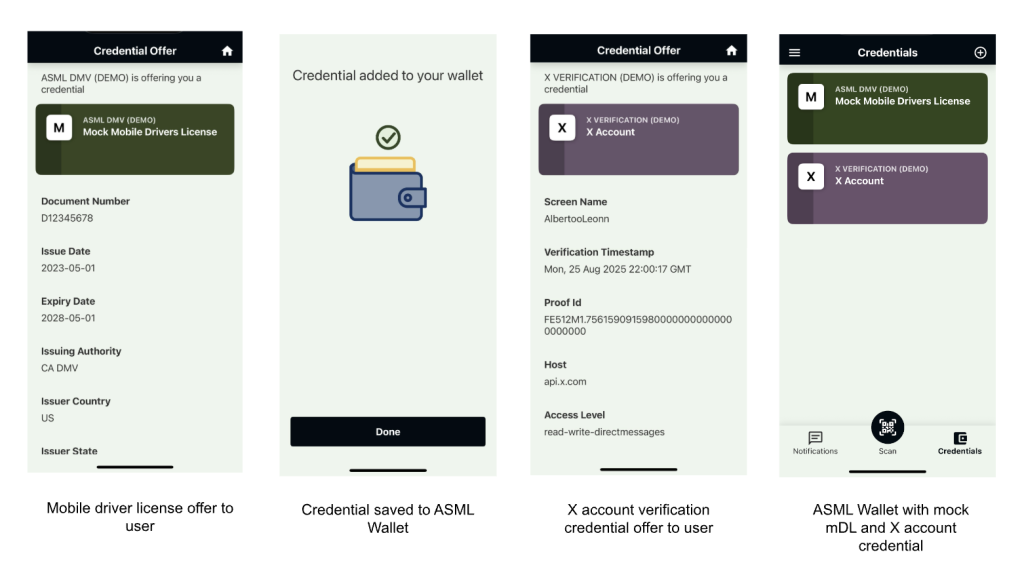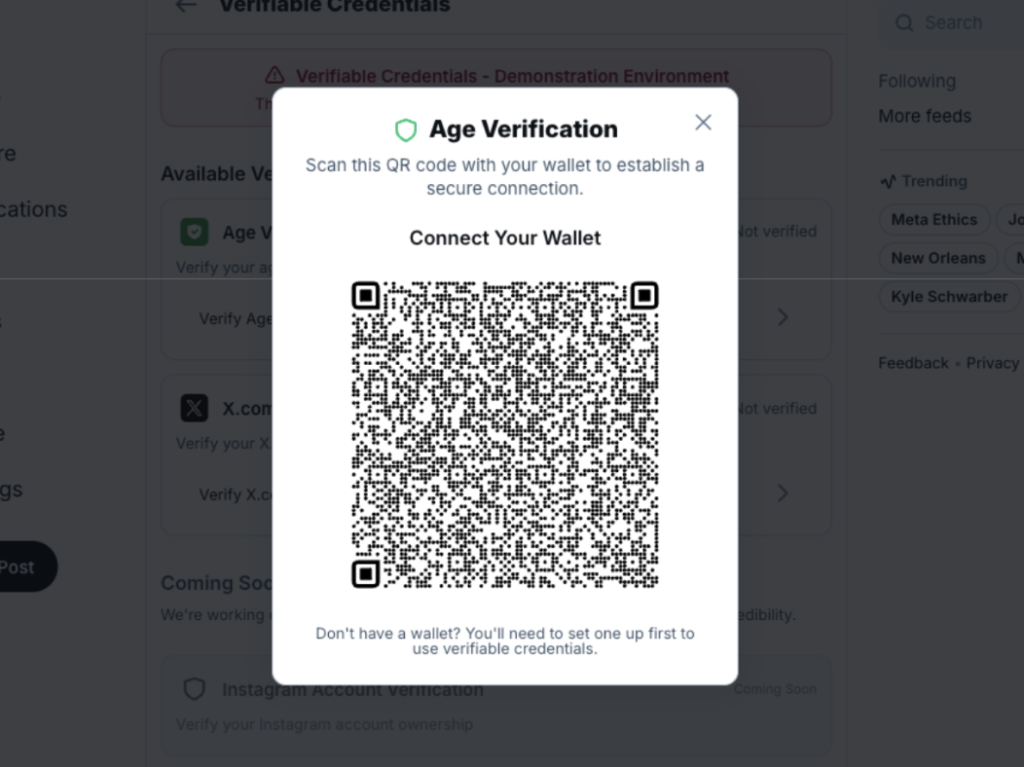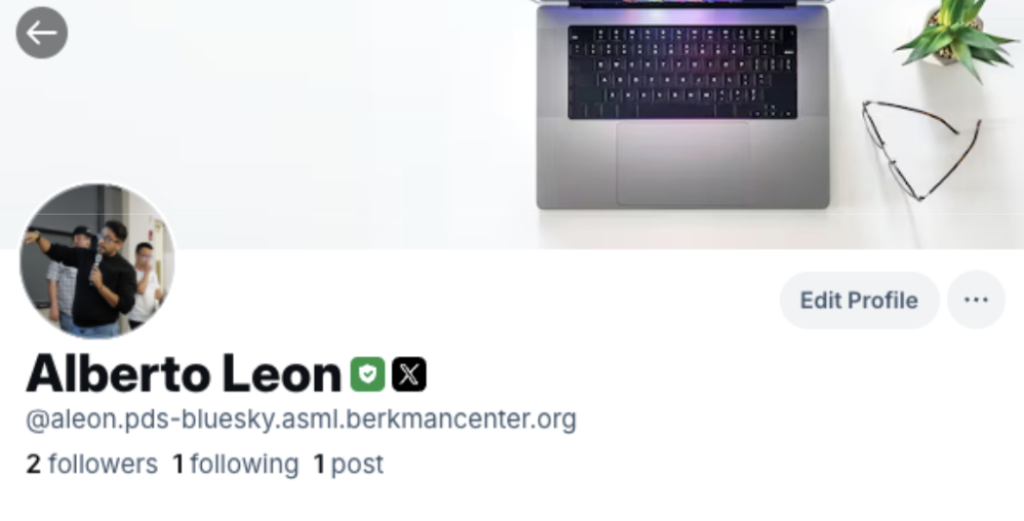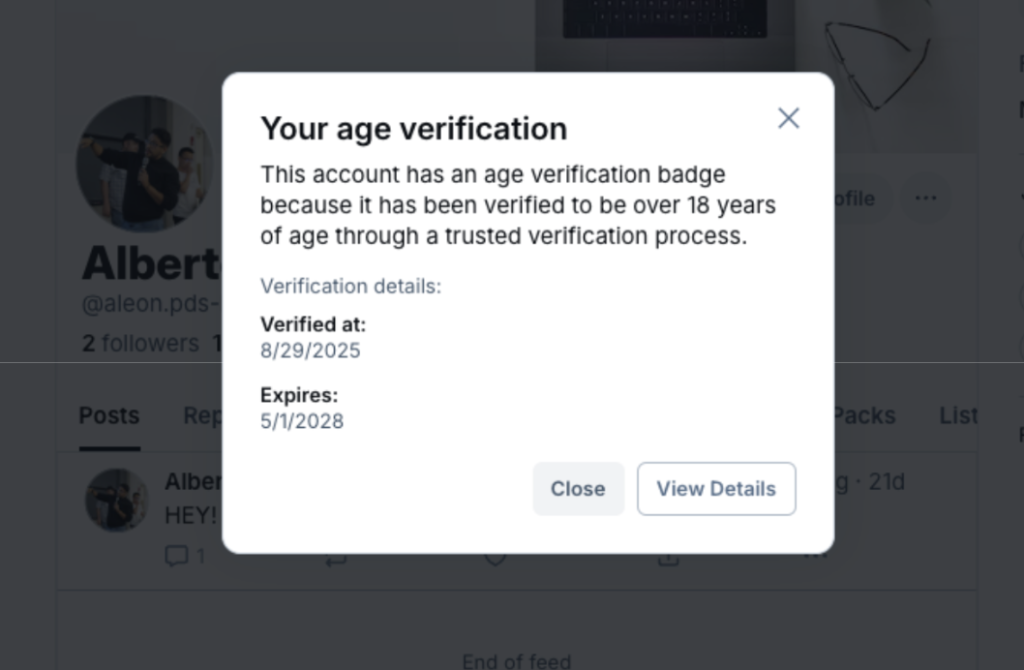Advanced Digital Identity is an effort to provide individuals with greater control over their identity on social media platforms. At the center of this project is the ASML Wallet, which stores verifiable data about the user’s identity on their mobile phone. Using sophisticated cryptography, a user can choose to selectively disclose certain aspects of their identity to different platforms, services and communities, with strong and clear privacy controls, in a way that others can verify.
Vision
To develop ways for users to reclaim control of their data and privacy, and to verify important details about their contacts and sources of information online.
Goals
The project aims to:
- Provide an easy-to-use mobile app to store and manage sensitive identity information, and to enable users to selectively disclose it to certain services at their discretion
- Enable content creators and publishers to share trustworthy attestations about their social media accounts and content across platforms
- Allow users to verify their contacts and connections independently of any particular platform, in a way that is verifiable and portable.
Why This Matters
According to the Pew Research Center, 4 out of 5 of Americans polled stated that they “are concerned about how companies use the data they collect about them” and “feel they have very little or no control over the data collected by companies.” Today, a single person is frequently a member of dozens of online services. Most of those services will require users to authenticate (or “login”) to the service before the service will allow meaningful interactions. Unfortunately, traditional authentication systems place control in the hands of the authentication system, not the user. The user must authenticate by revealing sensitive information (e.g., an email address or a birthday) directly to a service; ideally, the service would allow the user to verifiably reveal just enough information to authenticate (e.g., “this user has a valid Gmail account” or “this user is at least 13 years old”) without revealing anything else (e.g., the user’s full Gmail account name or their full birthday).
The goal of the Advanced Digital Identity project is to provide authentication infrastructure that centers user agency. In particular, the infrastructure allows a user to verify a specific facet of the user’s identity (e.g., age or ownership of a specific social media account) to a specific online service, at a time decided by the user, and without revealing additional information. Via this selective, user-driven disclosure mechanism, users can build their online reputation (and verify the reputation of other people) without totally ceding control of the underlying personal data.
Strong-but-privacy-preserving demonstration of personal identity is also critical for protecting online services from unchecked proliferation of AI bots and other undesirable programmatic actors.
When users have greater control over their identity and data across platforms, they can both protect their privacy and have more meaningful choices regarding when and how to share their information. We believe that increasing user choice will gradually reduce problems with the undesired“lock-in” users experience today, promote greater competition and accelerate the emergence of better, healthier social media products.
How It Works
The ASML Wallet gives users control over their identity and discretion about what data to share with whom. It is the user’s “control center.” Users on social media applications—for example, the Bluesky platform in one current demonstration—can provide proof of particular information and display this as profile badges that other users can see and confirm. To date, this particular information includes:
- Proof of Linked Accounts – To confirm that a user controls a particular user name on X or Instagram, etc. This allows users to unify their identity across platforms when desired.
- Proof of Age – To confirm that a user is an adult using data from a mobile driver’s license, without disclosing their actual birthday or age. This can control access to age-gated content.*
These profile badges improve trust and safety on platforms, while allowing users control over what information they disclose and to whom.
Planned work will extend the ASML Wallet to provide proof of connections using verifiable relationship credentials, which are directly created by the parties involved without requiring an intermediary. These “first person” credentials may help in providing proof of personhood and content provenance in the future.
*At this point in time, this demonstration relies on a mock mobile driver’s license. Future implementations may leverage other data sources.




Who Can Benefit
We are creating identity solutions for:
- Everyday individuals who are looking for greater agency and privacy in how they are identified online
- Organizations and communities aiming to verify the affiliations and endorsements of their members
- Developers in the digital identity community working on novel digital identity solutions
- Journalists or whistleblowers who need to prove their identity or affiliation
- Content creators, influencers, and content publishers that want to confirm identity across online platforms.
Get Involved
We’re looking for collaborators, test partners, and ideas for new features. If you’re interested in experimenting with our identity solutions (or shaping their development), we’d love to hear from you at asml@cyber.harvard.edu.



